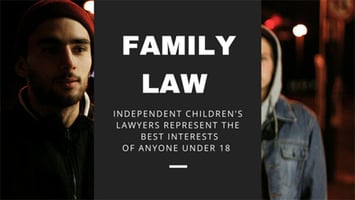Recently the Family Law Act has been amended to allow children to speak for themselves in court...
Family Law: Divorce by Power of Attorney? When a Third Party Calls it Quits
Though a marriage is decided by two people, a divorce can be the product of three. Family law continues to get more confusing and elaborate as the average family continues to grow and step-relatives become more common. What is divorce by power of attorney? And could it ever happen to you?
Divorce by Power of Attorney: How does it happen?
The circumstances that allow a divorce by power of attorney were not as common in the past as they are today. It's a combination of two factors, firstly, an increased lifespan does put more of the population at risk of developing a mentally disabling illness rendering some incapable of handling their own affairs. The second factor is the increased prominence of divorces, separations or de facto relationships, and as such, it is more likely that a person will remarry and have a larger circle of relatives, including non-blood relatives. This can lead to cases where children from a first marriage have power of attorney over their biological parent and can make decisions that affect their step-parent. So when do these cases of divorce by power of attorney happen?
A recent case of Australian divorce by Power of Attorney
On Radio National's Law Program recently, they discussed recent cases where divorce was brought about by the decision of a person given power of attorney over another. The first case they discussed was that of McKenzie and McKenzie. Mr McKenzie disappeared without a trace in 2011, and in October of that year Mrs McKenzie asked her mother for help in filing for a divorce. Before she could actually file for divorce, she suffered a brain injury and was not capable of handling her own affairs. Her mother was made an administrator for her (someone who will handle a person's legal and financial affairs if they can't themselves) and she went to court to get her daughter's divorce.
She argued that when her daughter had been mentally capable she had asked for a divorce. The divorce was granted as there was evidence that this was indeed what the daughter had wanted, as well as the daughter having met the requirements to file for divorce e.g. separated for 12 months.
The Family Law Report program went on to examine another case of divorce by Power of Attorney, which concerned a man who had remarried but had two children from a previous marriage. As in the case of McKenzie and McKenzie, Mr Underwood wanted a divorce from his wife, Mrs Price. His initial attempt was successful, but Mrs Price appealed the decision so the divorce was called off by the court.
However, by this time Mr Underwood was extremely unwell, unconscious and expected to only live for three more days. He had given his daughter from his first marriage power of attorney over him, and the day after the divorce was deemed cancelled by the court, she made an application to the family law courts for her father to be divorced from her stepmother.
Like Mrs McKenzie's mother, Mr Underwood's daughter argued that when Mr Underwood had the mental capacity to make such a decision he had gone through the process of filing for a divorce, and had apparently even said that he wanted to die single. This was overwhelming evidence for the court that Mr Underwood no longer wanted to be married to Mrs Price.
The only reason his initial divorce had been overthrown was because there was some argument over how long he and Mrs Price had been separated. He claimed it was from one date while she claimed it was from another that was within the 12 month period of separation required by law for a divorce to be accepted. However, the application made by his daughter was successful, and was successful on that day to reflect the circumstances in which it had been made. A divorce doesn't normally take effect until one month after the court proceedings, but because one of Mr Underwood's final wishes was to die single and because he had only a matter of hours to live, his was granted immediately.
As time goes on, cases like McKenzie and McKenzie, and Price and Underwood will become more common. The question now is, what kind of implications will these ever-changing circumstances have on both the law and on everyday Australian families?


